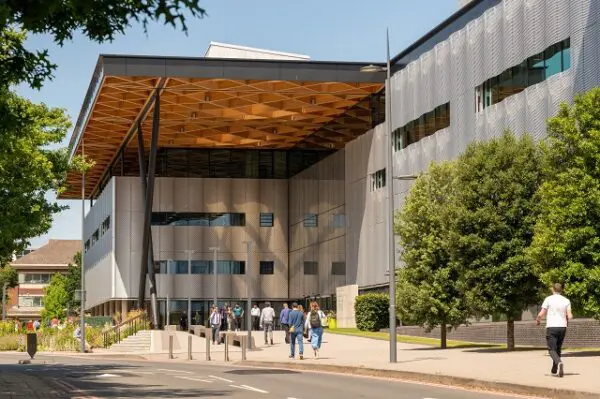
Amsterdam, Netherlands
Introduction to Anti-Money Laundering Law and Compliance: An International and Regional Perspective
When:
20 July - 24 July 2026
Credits:
0 EC
Read more
Law & International Relations Summer Course
When:
07 July - 11 July 2025
School:
UNICRI Specialized Courses Programme
Institution:
United Nations Interregional Crime and Justice Research Institute
City:
Country:
Language:
English
Credits:
0 EC
Fee:
1200 EUR

International migration and mobility are growing global phenomena, increasingly involving mixed migration flows and triggering new challenges in the areas of security and human rights. Analysing migration as a crosscutting topic and considering the perspectives of both migrants and States, along with other fundamental actors in the global governance system, are crucial steps in developing and implementing national migration and asylum policies that comply with international human rights, humanitarian standards, and labour protection policies. Human rights are at the core of all UNICRI’s activities as indispensable to preventing crime and promoting justice, peace, security, and the rule of law. They are also fully embedded in John Cabot University’s mission as an American liberal arts’ institution of higher education that promotes an international educational experience based on ‘intellectual tolerance, freedom and integrity’.
According to the United Nations (UN) there are about 281 million international migrants in the world, constituting 3.6 of the global population, with the International Labour Organization (ILO) estimating that 169 million are migrant workers. Forced migration is unfortunately on the rise: as reported by the United Nations High Commissioner for Refugees (UNHCR), as of mid-2024, an estimated 122.6 million people worldwide were forcibly displaced due to persecution, conflict, violence, human rights violations, and events seriously disturbing the public order. This means one in every 67 people, remained forcibly displaced - nearly double the 1 in 114 people in this situation a decade ago. With 43.4 million refugees currently protected in Member States across the world, today’s global displacement situation is testament to the enduring relevance of the 1951 Refugee Convention and its 1967 Protocol and of regional refugee law systems. Finally, the United Nations Office on Drugs and Crime (UNODC) confirms that smuggling routes affect every region of the world and that, after a sharp decrease during the Covid-19 pandemic, the number of trafficking victims detected worldwide is on the rise, and that they are trafficked through an increasing number of international traveling routes.
The 2030 Agenda for Sustainable Development includes, in Sustainable Development Goal (SDG) 10, Target 7, a pledge by United Nations’ Member States to “Facilitate orderly, safe, regular and responsible migration and mobility of people, including through the implementation of planned and well-managed migration policies.” Moreover, the 2018 adoption of two Global Compacts regarding Safe, Orderly and Regular Migration and Refugees, is a clear indicator of the relevance of international migration in the global governance system.
Although the numerous international legal instruments in place to ensure the protection of human rights for migrants, asylum seekers, refugees, and trafficking victims, violations frequently occur. These individuals remain among the most vulnerable members of our society, despite the potentially significant benefits of migration. They are exposed to discrimination, abuse, and exploitation by various actors, including transnational organized crime networks and terrorist organizations.
The 10th edition of the Summer School on Migration and Human Rights will be delivered in Rome from 7 to 11 July 2025 by the United Nations Interregional Crime and Justice Research Institute (UNICRI) and John Cabot University (JCU). Participants will gain insights into a variety of concepts and topics and actively engage in discussing matters related, among other issues, to:
- International human rights, humanitarian, migration, anti-trafficking, and asylum laws
- The rights of asylum seekers and refugees under international and European law
-The rights of asylum seekers and migrants under the European Convention on Human Rights
- Internally displaced persons
- Irregular migration: balancing human rights and security
- Irregular migration by sea
- Migration and rural development
- Migrant protection and assistance
- Right to health for migrants and refugees
- Migration and the challenge of religious pluralism
- Protection of migrant children
- Migration, development, and integration
- Global displacement
Course methodology
Classes take place at John Cabot University Campus in Rome (Italy), Monday to Friday from 9:30 a.m. to 4:30 p.m. CEST. The class schedule may be subject to change for additional activities, which will be communicated before the course begins.
Absences resulting from inadequate planning will not be considered justified. Participants will not be entitled to the certificate award, refunds, or reductions in registration fees.
How to apply
Application deadline: please complete and send the application form - and a scanned copy of your valid passport by 23 June 2025.
Confirmation of acceptance: the results of the selection process will be communicated via e-mail within 1 week following receipt of the application.
Payment deadline: full payment must be finalized within 1 week following confirmation of acceptance (i.e. candidates should provide UNICRI with proof of payment via e-mail).
Certificate of Participation
Upon completion of the entire Summer School programme, participants will receive a certificate of participation jointly issued by the United Nations and John Cabot University. The Organizers retain the discretion to consider severe reasons for absences when issuing the certificate
The United Nations Interregional Crime and Justice Research Institute (UNICRI), established in 1968, operates as an autonomous entity within the UN Crime Prevention and Criminal Justice Programme Network. Governed by its 1989 Statute, UNICRI conducts research, training, and technical cooperation to address criminal threats, promote justice, and support efficient criminal justice systems. The Institute aids governments and the international community by advancing crime prevention policies, fostering international cooperation, and facilitating the exchange of information. UNICRI's activities align with UN priorities, addressing issues such as organized crime, judicial reform, counter-terrorism, cybercrime, environmental crimes, and gender issues in drug abuse. Its work is guided by a Board of Trustees composed of global experts
The course is designed for university graduates in Law, Political Science, International Relations, Economics, Social Science, and other relevant disciplines. It is also suitable for young professionals working in governmental institutions, local authorities, international and non-governmental organizations, seeking to deepen their understanding of current human rights issues affecting migrants. Candidates must meet the following minimum requirements:
- Hold a three-year university degree from an internationally recognized university in one of the mentioned areas; and
- Have a strong command of the English language
The Summer School offers a comprehensive exploration of professional, legal, social, scientific, and academic perspectives through theoretical lectures, group discussions, dynamic case studies, individual readings, and practical exercises. The faculty of the Summer School comprises leading scholars and academics from John Cabot University and other universities, along with representatives from the United Nations system, international human rights bodies, and civil society.
By attending the course in person at JCU’s beautiful campuses in the heart of Rome, participants will have the unique opportunity to interact with internationally recognized experts and peers from around the world, exchange views and opinions and build lasting professional relationships. This experience promotes intercultural dialogue and deepens understanding of some of the world’s most complex and debated issues
Fee
1200 EUR, Registration fees include: Tuition and course material
Fee
350 EUR, Accommodation: Double/Triple room – 8-night accommodation at the John Cabot University Housing facility in Rome (Italy). Only participants duly enrolled in the Summer School can apply for accommodation
When:
07 July - 11 July 2025
School:
UNICRI Specialized Courses Programme
Institution:
United Nations Interregional Crime and Justice Research Institute
Language:
English
Credits:
0 EC

Amsterdam, Netherlands
When:
20 July - 24 July 2026
Credits:
0 EC
Read more

Coventry, United Kingdom
When:
14 July - 24 July 2026
Credits:
0 EC
Read more

St. Gallen, Switzerland
When:
08 June - 12 June 2026
Credits:
4 EC
Read more